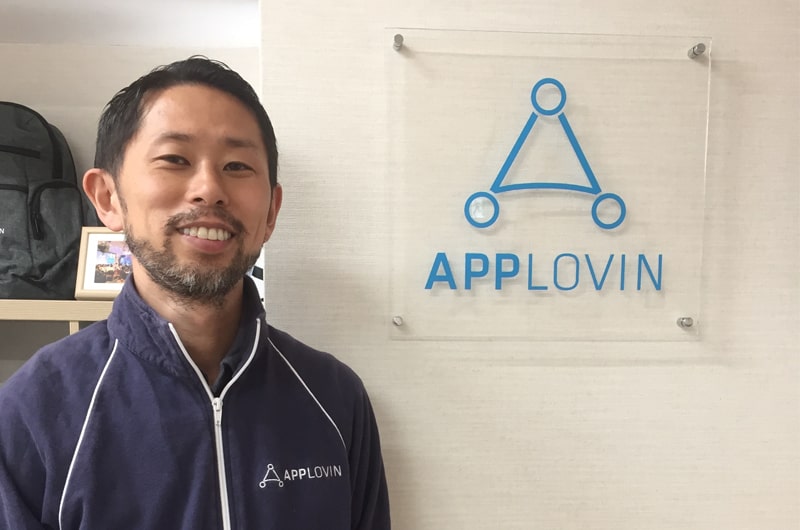
Btrax Design Company > Freshtrax > AppLovin: Why U...
AppLovin: Why Understanding the Japanese Culture is Crucial for Localization
The adoption rate of smartphones has grown tremendously over the years, and mobile first apps have proliferated along with it. According to Statistica, a site compiling various statistical reports, there are currently 5.8 million apps between the App Store and Google Play.
The fact that so many apps are out there means that many companies are supporting their development and promotion. We interviewed one of those mobile-first companies, AppLovin, a mobile marketing platform headquartered in San Francisco. It is a rapidly growing startup with offices in six countries around the world.
AppLovin has worked with mobile developers around the world, including Tik Tok, a popular Chinese social media app.
We at btrax are involved in helping companies develop new services for new markets, so we interviewed AppLovin on their localization strategies for growing their mobile marketing platform in Japan and abroad. We spoke with AppLovin Japan’s Country Manager, Nori Hayashi.
Connecting to Japan – 4 Essential Product Localization Tips For Global Growth
Japan Cannot be Overlooked in the App Market
First off, what is AppLovin?
AppLovin is a mobile marketing platform created for app developers who want to optimize user acquisition and app monetization. It was founded as an advertising platform in 2011, and since then has grown to be a critical growth engine for mobile developers around the world.
I joined AppLovin’s head office in San Francisco as their 15th employee in 2013 and worked there for about three years. After that, I moved to Tokyo with the founding of the Japanese branch office and I currently oversee the Japanese and Korean market.
We have 11 employees in Japan, in business development, account management, and marketing, and everyone has a startup-oriented mindset. The quality of work is very high, and everyone is engaged in their work, has a positive attitude and strong sense of ownership.

AppLovin is a US company, but what kind of details did you have on Japan before expansion? How did you prepare for Japan market entry?
We thought that Japan, the third largest country in the app market, could not be overlooked. Japan is a game powerhouse; many Japanese game companies have developed high-quality games and distributed them worldwide, and even while we only had an office in San Francisco we were supporting many Japanese clients from there.
Also, we had many overseas game apps and developers on our platform that we wanted to introduce to Japan, so we thought we could contribute to their business expansion by strengthening support in the Japanese market. It was clear that one of the next markets after the US and Europe was Japan.
Before entering the Japanese market, we first validated the market potential on business trips and over the phone, confirming the market fit and potential business size. These days, especially in the app world, it is possible to operate sales, from generating leads to fulfilling orders, remotely.
We first achieved growth in the US market, and once it was clear there was an opportunity in other countries that is worth investing in, we began expanding.
What challenges did you face when expanding to Japan and how did you overcome them?
We thought that if we required approval from the head office, then business growth would slow, and I noticed that this decrease lost business opportunities and decreased the motivation of employees who were going to adopt our platform, so I was very careful of that.
Fortunately, I had worked with the management team and the CEO at the headquarters, so I knew about their decision making process. Therefore I was able to make a lot of decisions on my own, or seek approval very quickly.
Differences in Relationships with Advertising Agencies Between Japan and the US
How do the markets and cultures in Japan and the US differ?
The way we approach clients at AppLovin is different. US clients make decisions logically, so we often must explain services and apps in a data-driven fashion.
In Japan, however, the person in charge does not directly make the final decision in many cases, and I think there is a tendency to be conscious of whether or not there are any success cases with other companies. So, instead of blindly increasing the number of clients, we first chose to focus on working with clients where we had a high probability of success, and then expanded to other clients with those success cases to showcase.
What was your strategy to successfully expand your service to Japan?
I had experience in setting up ad networks in the past, so I knew about important players in the market.
Compared to the US where it’s more common to deal with direct advertisers, advertising agencies have a big influence in Japan. Therefore, we focused on making our connections with Japanese advertising agencies as robust as possible.
The Importance of the Relationship with Advertising Agencies
What did you focus on to gain trust?
Most of the advertising agencies that I had relations with are those specializing in mobile advertising, such as Cyber Agent, Septeni, and Adways.
This is just an example of what we did, but instead of doing business with a large number of clients from the start, we first worked with a small number of clients and created good results so that sustainable relationships could be made. By doing so, we were able to receive great testimonials from agencies, and were able to gradually increase the number of clients we could work with.
However, the strategy with Japanese distributors is very different compared to the US, which is most of the business coming from direct advertisers, so it was important for people in our headquarters, including the CEO, to understand this. We were able to bridge that gap in understanding by showing our headquarters, with real quantitative results, that by working with agencies we are able to scale the business very quickly and grow our revenue.
Understanding the Market and Culture is Crucial for Localization
How do you want to grow the Japanese market in the future?
AppLovin offers a comprehensive platform that helps app developers of all sizes market and monetize their app. On top of providing these services, we come to deeply understand the issues and needs of our clients, and propose the best solutions based on their situation. By building a mid- to long-term rather than a temporary relationship, it is our hope that our clients view us as a trusted, longtime partner.
Corporate culture has a great influence on the growth of the company. Tell us about the culture at AppLovin.
We consider AppLovin to be a startup, so people who want to learn new things and challenge themselves work here. Regardless of whether or not you can speak English well, or whether you have relevant experience or not, we will respect the individual’s attitudes and viewpoints towards work.
Also, since transparency is emphasized in our company, I make sure to create an environment where each team member can share their knowledge with the entire team to grow together as a whole.

Finally, what advice do you have for companies thinking about expanding to the Japanese market?
I have seen that many foreign companies have failed at expanding to Japan, and this is often because the people who are in charge of expansion do not have a strong understanding of the Japanese market, culture, and management style.
Also, many companies tend to hire people who have a good command of English and those with experience in the industry when expanding to Japan. However, entering a new market is more like launching startup, which requires comprehensive abilities, from sales to strategy to PR/marketing.
Sure, it’s better to have someone who speaks English fluently, but that is not the most important thing. If a strong candidate has all the necessary skills but is not a strong English speaker, you can always hire an interpreter. You should think like that and should hire. A team where each person can think and act independently to grow the business.
Our interview with AppLovin sheds some light on what it takes to succeed at expanding to the Japanese market. At btrax, one of our specialties is Japan market entry and localization, and we have helped numerous clients do just that. If your business is ready to take the next step in preparing for the Japanese market, please contact us!







